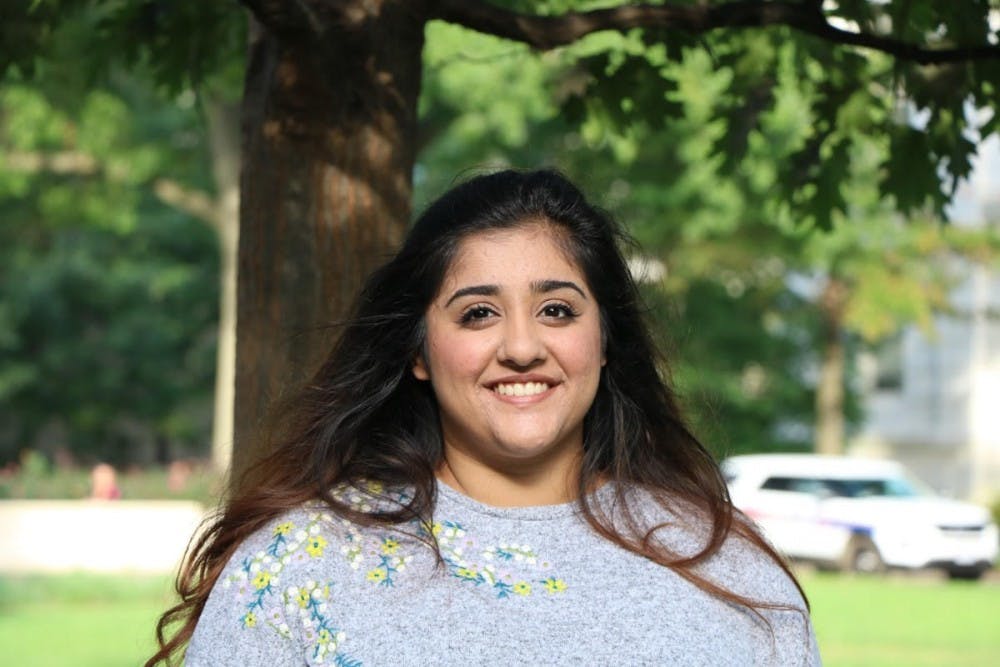AU is currently being led by the previous Secretary of Health and Human Services, yet the University does not pay enough attention to its students who experience substance abuse and addiction. Given our intense party culture and that our rates of substance abuse are higher than the national average, it is imperative that AU administrators take significant strides in providing for its students who are struggling with addiction.
Over the course of the last two semesters, AWOL created a second installation of their “Ripped from the Wall” multimedia project. The podcast, entitled “Addiction at AU,” is a three-part series that was an exploratory venture into the realities of drug addiction on our campus. While the prevalence of drugs on college campuses might seem inevitable, the podcast discusses what makes the AU community unique in regard to addiction.
Pritma Irizarry, the director of the Health Promotion and Advocacy Center who is featured on the podcast, characterizes AU as a “perfect storm of risk factors,” further compounded by a historical failing on the part of the University to address substance abuse. We’re part of a university that is fighting for inclusivity and acceptance, but where is that fight when it comes to addiction?
As emphasized in the podcast, addiction is a very real mental illness and treating it as if it were simply a matter of willpower to quit is dehumanizing and wrong. This portrayal creates shame around the subject and prevents those affected from seeking help. Taking this unfortunate reality into account, the fact that AU does not have a streamlined way for students to seek help is disappointing.
The first episode of the podcast detailed the journey of a student seeking more information on what the University is prepared to do when helping those struggling with addiction. She was sent from department to department without receiving any real answers. Additionally, the Counseling Center feels inaccessible to many students who struggle with drug and alcohol issues because going to get help for something with legal ambiguities is complicated.
Another contributing factor is that AU doesn’t talk about drug addiction accurately or enough. AUxI, the first semester of the transition course for freshmen, attempts to provide some information about the signs of addiction. For example, an activity sheet described marijuana as causing depression, anxiety, poor academic performance and criminal activity. Professor David Kearns, who has a PhD in psychology and was featured in the podcast, disputed these claims. He said that no causal relationship has been scientifically established for any of these effects.
Additionally, AU is unclear on the specifics of its alcohol and drug policies. This creates confusion and misconceptions throughout the student body, leaving students unsure of where exactly to get help and whether they will face disciplinary consequences for doing so.
By failing students in this respect, AU administration is effectively strengthening the stigma around addiction and substance abuse. While the Health Promotion and Advocacy Center offers free 30-minute “wellness consults” to help students determine an action plan for their needs, not enough students know about these, nor are these enough to address the problem.
It’s one thing to punish students for bringing drug paraphernalia on to campus, but to not provide enough resources for those who are dealing with an illness is another immense disservice entirely. It delegitimizes the very real health implications those students contend with.
AWOL’s podcast brings much needed attention to a rampant issue with effects that are often pushed aside or ignored. The fact that efforts to help students aren’t already in place reveals a staggering disconnect between the needs of students and the priorities of the administration.
It opens up a conversation that the student body needs to participate in and the administration has a duty to listen to. University President Sylvia Burwell’s participation in the project was a start. But as a community, we should be doing everything we can to support those who are struggling with drug addiction.
Riya Kohli is a freshman in the School of Public Affairs and a columnist for The Eagle.
rkohli@theeagleonline.com
This article originally appeared in The Eagle's April 2019 print edition.





